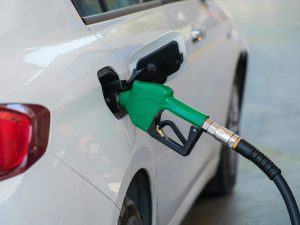The Role of Blockchain in Vehicle History Verification
In the world of automotive sales, transparency is key. From buyers looking for a reliable vehicle, to sellers trying to make a fair deal, having access to accurate vehicle history information is crucial. However, this information is not always readily available or trustworthy. That’s where blockchain technology comes in. In recent years, blockchain has emerged as a powerful tool for verifying and securing data. And in the automotive industry, it’s proving to be a game-changer for vehicle history verification. In this article, we’ll explore the role of blockchain in vehicle history verification and its impact on the automotive industry as a whole.
The Problems with Traditional Vehicle History Verification
Before we dive into the role of blockchain, let’s take a look at the current issues with traditional vehicle history verification methods. Currently, most verification processes rely on a central authority to store and manage vehicle data. This means that the data is vulnerable to human error, fraud, and hacking. Additionally, the data is often siloed and not easily accessible to all parties involved in a vehicle sale. This can lead to delays, misunderstandings, and even disputes between buyers and sellers. Furthermore, traditional vehicle history reports are not always reliable as they can easily be falsified or manipulated, resulting in inaccurate data being presented to potential buyers.
The Promise of Blockchain for Vehicle History Verification
Blockchain technology offers a decentralized and immutable way of storing and sharing data. Essentially, it is a distributed ledger where data is stored in a chain of blocks that are connected and secured using cryptography. Each block contains a timestamped record of transactions, making it virtually impossible to alter or delete data without leaving a trace. This eliminates the need for a central authority and ensures that data remains intact and transparent.
Securing Data with Blockchain
Vehicle history information stored on a blockchain network is much more secure than traditional methods. As mentioned earlier, data stored on the blockchain cannot be altered without leaving a trace. This is because every block in the chain is connected and secured using cryptography, making it virtually impossible for anyone to tamper with the data. This provides buyers and sellers with reliable and accurate information, boosting trust and transparency in the automotive market.
Easy and Instant Access for All Parties
One of the major advantages of using blockchain for vehicle history verification is the ease of access for all parties involved in a sale. With traditional methods, data is often stored in different databases, making it difficult and time-consuming to access and share. However, with blockchain, all parties have equal access to the data in real-time, eliminating delays and misunderstandings. This also eliminates the need for third-party verification services, saving both time and money for buyers and sellers.
Reducing Fraud and Improving Trust
Blockchain technology is helping to reduce fraud in the automotive industry by providing transparent and immutable data. A vehicle’s history, including ownership, maintenance records, and accident reports, can be stored on the blockchain, providing buyers with a complete and trustworthy record. This not only improves trust between buyers and sellers, but it also helps to weed out fraudulent vehicles from the market.
The Impact of Blockchain on the Automotive Industry
It’s clear that blockchain technology has a significant role to play in vehicle history verification. But its impact on the automotive industry goes beyond just verifying vehicle data. By providing accurate and easily accessible data, blockchain is enabling greater transparency and trust in the automotive market. This is beneficial for both buyers and sellers, reducing the risk of disputes and improving the overall transaction experience. Moreover, as blockchain continues to gain traction in the automotive industry, it is likely to revolutionize other areas such as vehicle financing, insurance, and even supply chain management.
Conclusion
Blockchain technology has the power to transform traditional vehicle history verification processes, making them more secure, transparent, and efficient. The use of a decentralized and immutable ledger ensures that data is reliable, accessible, and tamper-proof. With the promise of improved trust and transparency in the automotive market, it’s safe to say that blockchain will continue to play a significant role in vehicle history verification in the years to come.










